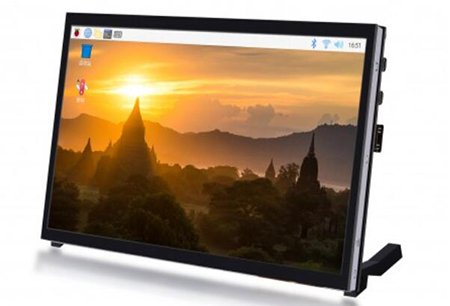Are LCD screens better?
Views: 526 Update date: Nov 20,2023
Whether LCD (Liquid Crystal Display) screens are better depends on the context and the specific requirements of the user. LCD screens have several advantages and some limitations when compared to other display technologies, such as OLED (Organic Light-Emitting Diode) and Plasma. Here are some factors to consider:
Cost: LCD screens are often more cost-effective to produce than OLED screens, making them a popular choice for a wide range of devices, including TVs, monitors, and laptops.
Brightness: LCDs can achieve high levels of brightness, which is beneficial in well-lit environments.
Longevity: LCDs generally have a longer lifespan than some other display technologies, such as OLED, which can experience degradation over time.
Variety of Sizes: LCD technology is versatile and can be easily adapted to various screen sizes, making it suitable for a broad range of applications.
Limited Viewing Angles: LCDs can have limitations in viewing angles, meaning that the display quality may degrade when viewed from extreme angles.
Black Levels: LCDs may struggle to achieve true black levels, as the backlight always emits some light even when the pixels are supposed to be off. This can affect contrast ratios compared to OLED displays.
Thickness and Flexibility: LCDs can be thicker and less flexible than some alternative technologies, such as OLED, which allows for thinner and more flexible displays.
Backlight Uniformity: In some cases, LCDs may suffer from backlight uniformity issues, where certain areas of the screen appear brighter or darker than others.
LCD screens are a mature and widely used technology with many benefits, especially in terms of cost, brightness, and versatility. However, whether they are "better" depends on the specific requirements and preferences of the user. For example, if someone prioritizes deep blacks and thin, flexible displays, OLED might be a more suitable choice. It's essential to consider factors such as the intended use, budget, and personal preferences when choosing a display technology.
Advantages of LCD Screens:
Cost: LCD screens are often more cost-effective to produce than OLED screens, making them a popular choice for a wide range of devices, including TVs, monitors, and laptops.
Brightness: LCDs can achieve high levels of brightness, which is beneficial in well-lit environments.
Longevity: LCDs generally have a longer lifespan than some other display technologies, such as OLED, which can experience degradation over time.
Variety of Sizes: LCD technology is versatile and can be easily adapted to various screen sizes, making it suitable for a broad range of applications.
Variety of Applications: LCDs are commonly used in TVs, computer monitors, digital signage, and many other display devices.
Limitations of LCD Screens:
Limited Viewing Angles: LCDs can have limitations in viewing angles, meaning that the display quality may degrade when viewed from extreme angles.
Black Levels: LCDs may struggle to achieve true black levels, as the backlight always emits some light even when the pixels are supposed to be off. This can affect contrast ratios compared to OLED displays.
Thickness and Flexibility: LCDs can be thicker and less flexible than some alternative technologies, such as OLED, which allows for thinner and more flexible displays.
Backlight Uniformity: In some cases, LCDs may suffer from backlight uniformity issues, where certain areas of the screen appear brighter or darker than others.
LCD screens are a mature and widely used technology with many benefits, especially in terms of cost, brightness, and versatility. However, whether they are "better" depends on the specific requirements and preferences of the user. For example, if someone prioritizes deep blacks and thin, flexible displays, OLED might be a more suitable choice. It's essential to consider factors such as the intended use, budget, and personal preferences when choosing a display technology.




